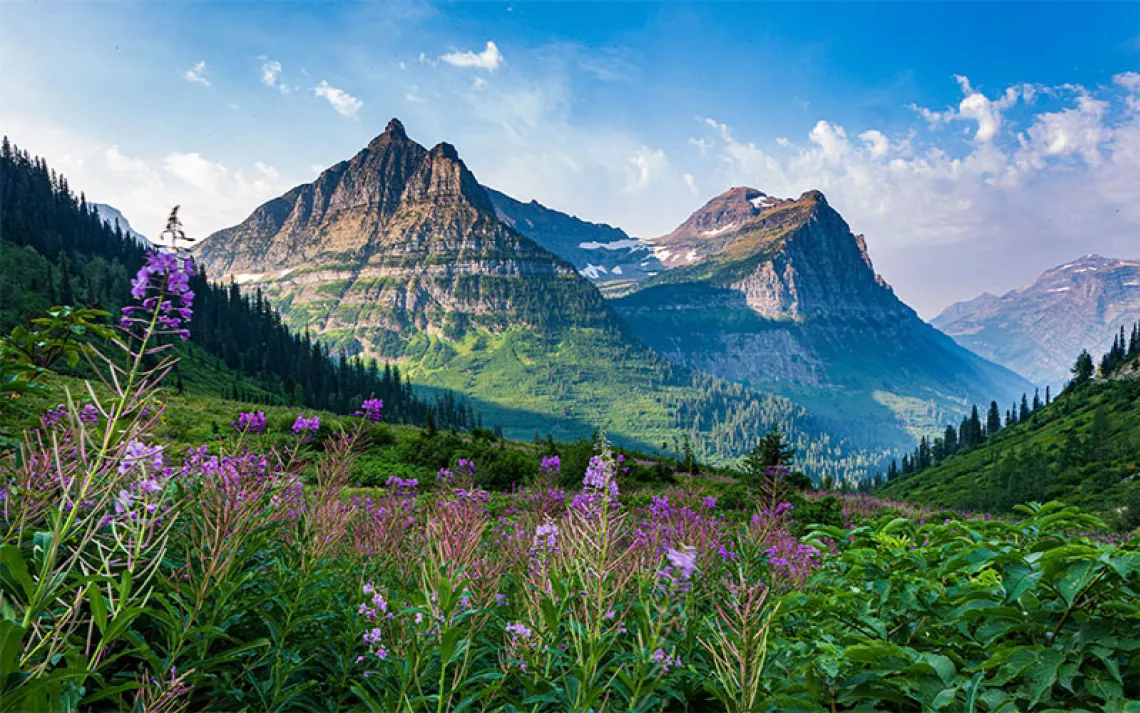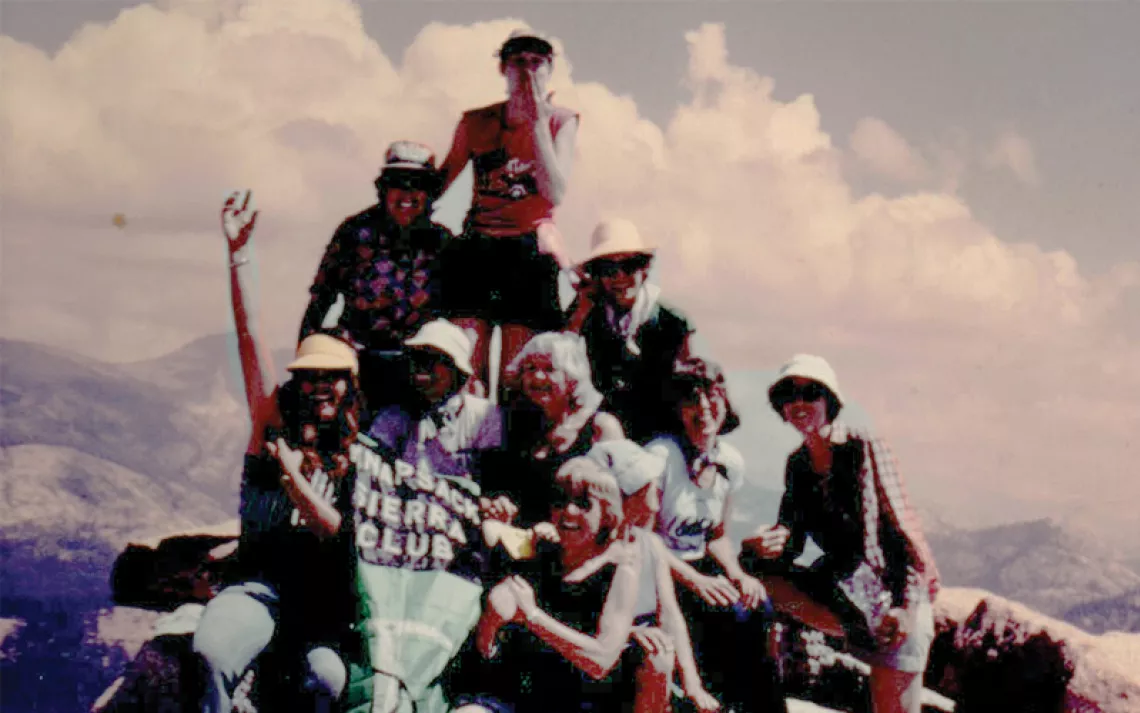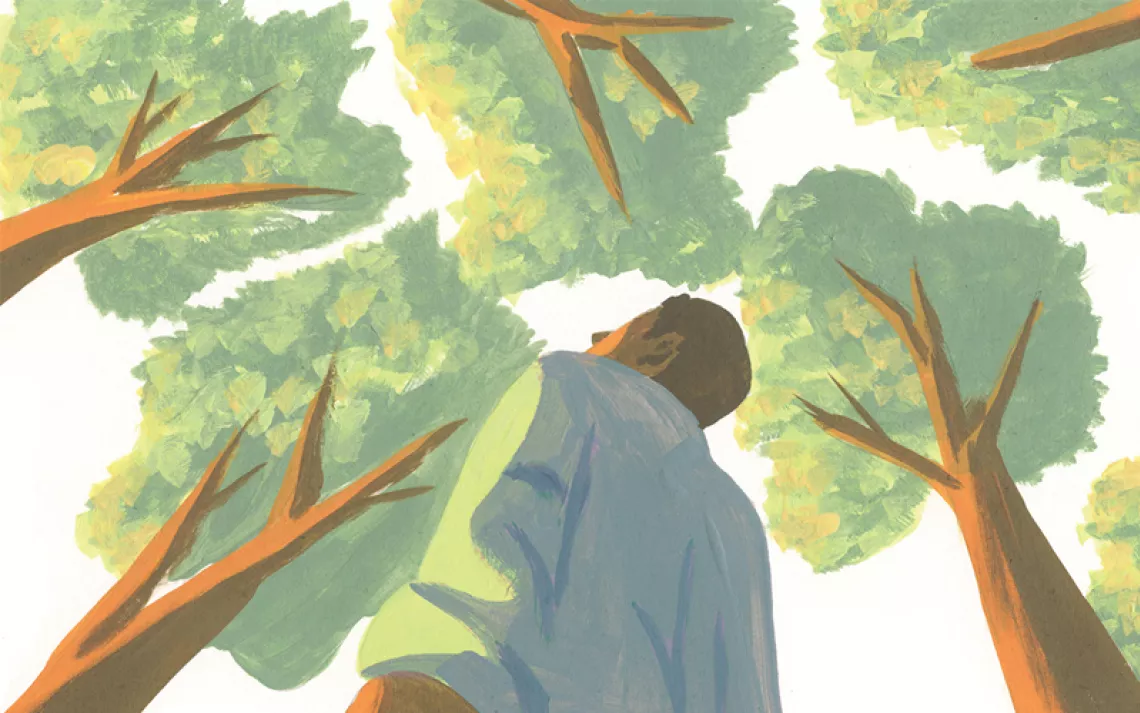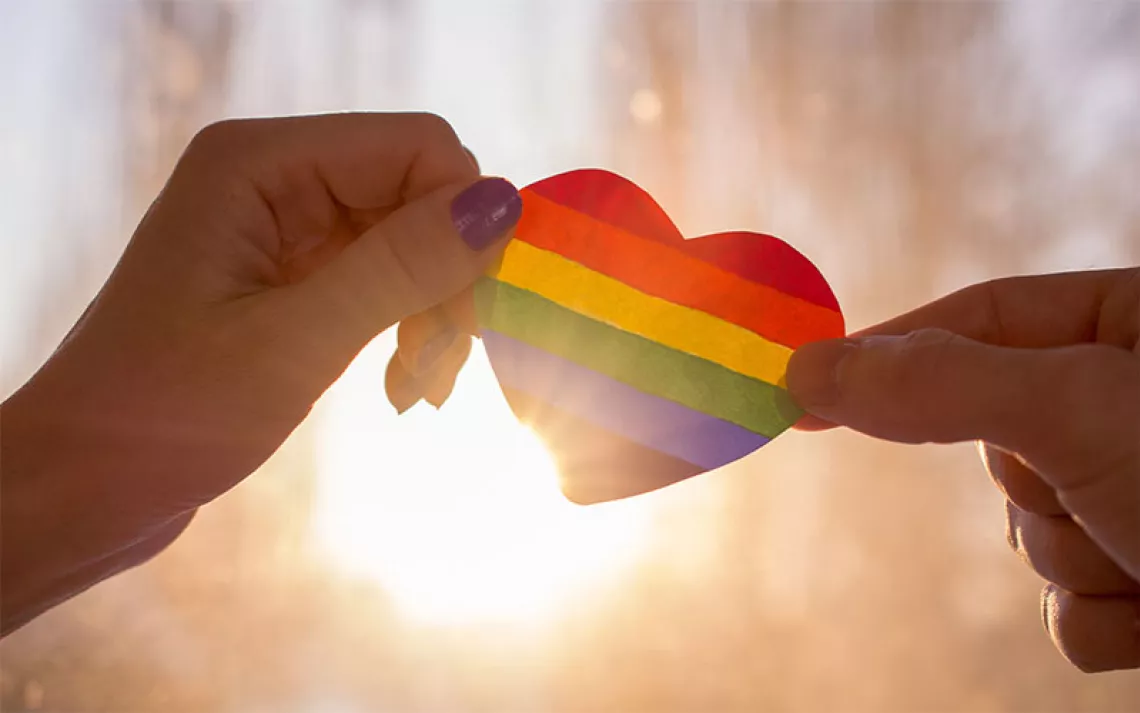The Human Run

Photo by Tim Bower
I walked down to a river where fishermen cast flies in the twilight. You could barely see them. It was an Alaskan late-summer twilight, the sky a dark glowing blue above evergreens, the river darker yet. All down the banks were dead coho salmon. They had swum up this river with their white muscle--the fast-twitch fish muscle that launches them over hydraulics--to get their bodies to these banks. Some still bobbed in eddies. In the middle of the river, one swam in place. It was green and pinkish, hook-mouthed, metal-eyed, and near death, its face sloughing off in the current. It may have been fertilizing eggs in the gravel. The freshwater made it die faster, and the stripped face was part of this. It rolled with the water.
That was my last night in Alaska, less of a place than an impulse. The impulse was toward making life harder and more dangerous than necessary. Everyone I met there had migrated from the contiguous United States--between Homer and Denali, I could not find a native Alaskan--because they thought that enduring the inhospitable mountains, the barren ground, the fog of mosquitoes, or the insane light would bring them closer to some truth about themselves. The truth part was left vague. They reminded me of the salmon, spurred by an ancient urge to head to freshwater for the sake of posterity.
I met a twentysomething woman from an affluent family who had come up to work in a fish cannery. She proudly described it as a massive room full of guts and despondency: her foray into the gauntlet of the macabre.
I met one man--a Tennessee transplant--who had selected his fishing spot precisely because it was frequented by bears. He liked to taunt them with his string of fish. Once, a grizzly tried to steal his catch, and the man threw rocks at its head.
And there was a couple--friends of mine--who visited Adak, a place on the far edge of the Aleutian Islands, and hunted caribou, then brought home the meat in giant Rubbermaids. It lasted them through winter. The ritual of turning the caribou into food seemed to confirm that winter was something to be survived, even though they lived in a fully connected house in the suburbs of Anchorage.
These people all thought that Alaska was a cordoned-off proving ground, a place to separate themselves from the rest of the human species and manufacture a hardscrabble lifestyle.
A version of this Alaskan impulse drove me to blast a brown cloud of bear spray and wave my hand through it to see how it felt (it burned). It drove me to wander deeper than I should have into a bush maze on the tundra. It drove me to stand for longer than I should have on the banks of that river on the Kenai Peninsula, surrounded by dead salmon, recalling what someone had told me in Denali National Park: that Denali grizzlies are huge, weighing hundreds of pounds, but Kenai bears are twice as large because of all the salmon. They brawl for fishing spots. The thought I had next was "The grizzlies here are massive, the woods at my back are dark, and I am standing in a salmon graveyard." My fear created a thrill, which steeled me to stand there longer, creating even more fear. I was on an adrenaline drip.
Eventually, though, I did move, because the next evening I had to get on a flight home. In Ted Stevens Anchorage International Airport, bars and restaurants overflowed. As I waited to board, the new arrivals streamed off planes, and I wondered if they were southerners heading into freshwater, where they would do something to peel their faces off or otherwise die faster.
 The Magazine of The Sierra Club
The Magazine of The Sierra Club



